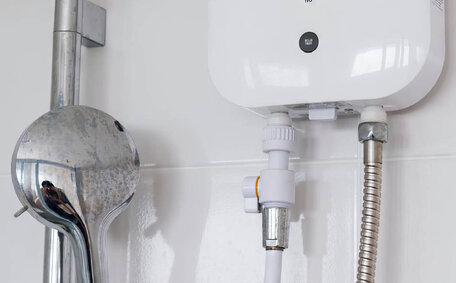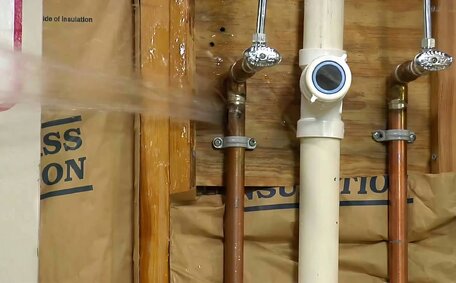Introduction to Pipe Relining Company Certifications
When it comes to plumbing repairs, choosing a qualified and certified pipe relining company is crucial. Pipe relining is a trenchless method of repairing damaged pipes without having to dig them up. It’s a cost-effective and minimally invasive solution that prolongs the life of your pipes.
But not all pipe relining companies are created equal. There are several certifications and qualifications you should look for when vetting potential contractors. These ensure the company uses proper materials and techniques that meet industry standards.
In Australia, pipe relining companies should be certified by the Australasian Corrosion Association (ACA). The ACA oversees training and certification across the corrosion control industry, including pipe relining. Technicians should hold specific credentials like ACA Pipe Lining Applicator certificates.
The company should also use epoxy resins approved for use in Australia by organisations like WaterMark. WaterMark certification indicates the resins are safe for potable water contact.
Reputable companies will offer extensive guarantees on their pipe relining work. Opt for those that provide 10+ year guarantees on labour and materials. Long warranties give you peace of mind that your pipes will hold up over time.
Don’t hesitate to ask a prospective pipe relining company about their credentials. A certified, quality contractor will readily provide information about their training, materials, guarantees and past work.
Importance of Proper Certifications for Pipe Relining
When vetting pipe relining companies, it’s critical to ensure they hold proper certifications. This validates their expertise and indicates they adhere to rigorous industry standards.
Proper credentials like ACA Pipe Lining Applicator certificates mean technicians are formally trained and qualified in pipe relining installation techniques. This helps ensure a more reliable, long-lasting repair.
Certified companies also use industry-approved materials like WaterMark epoxy resins. These resins are tested safe for potable water contact. Using improper materials risks pipe contamination and health hazards.
The right certifications also validate the workmanship itself. Look for companies that offer 10+ year warranties on labour and materials. This demonstrates confidence that their pipe relining solutions will maintain integrity over the long haul.
In the end, proper certifications give you peace of mind that the pipe relining job will be done right the first time. It’s a marker of quality workmanship and adherence to stringent industry standards.
Key Industry Standards for Pipe Relining
There are several key industry standards pipe relining companies must comply with to demonstrate credibility and expertise:
Materials and Resins
Companies should use epoxy resins certified for use in potable water systems by WaterMark, Australia’s water safety regulation body. WaterMark-approved resins ensure safety and reliability.
The grade and thickness of resins should comply with relevant ISO standards for pressure ratings and hazardous substance levels.
Applicator Certification
Technicians should hold ACA (Australasian Corrosion Association) Pipe Lining Applicator Certificates. ACA training validates proper installation techniques and knowledge.
Warranties
The industry standard is a 10+ year guarantee on workmanship and materials. Long warranties indicate confidence in longevity of the repair.
Adhering to stringent industry standards ensures pipe relining work meets safety regulations and provides durable, long-term solutions.
ASTM F1216 Standard
The ASTM F1216 standard is an important certification for pipe relining companies to comply with. ASTM stands for American Society for Testing and Materials.
The F1216 standard specifically covers rehabilitation of existing pipelines and conduits using cured-in-place thermoset resin pipe lining. This is the most common method used in pipe relining applications.
To meet ASTM F1216 criteria, the pipe relining process must use an epoxy resin system impregnated into a tube-shaped felt liner. This liner is then inserted into the damaged pipe and inflated. Finally, the liner is cured using heat to harden the epoxy resin.
Compliance indicates several things.
Firstly, it shows the pipe relining company uses industry-accepted methods and materials. It also demonstrates the resin system has been tested for chemical resistance, flexural properties and more. Lastly, it provides 3rd party validation of the company’s workmanship and quality control processes.
In Australia, ASTM F1216 is adopted by governing bodies like Sydney Water. Homeowners should verify a pipe relining company holds current F1216 certification as a credibility indicator.
ASTM F1743 Standard
ASTM F1743 is another important standard for pipe relining companies to meet. It covers the Materials, Design, and Installation of Folded/Formed Polyolefin Pipe Lining.
This standard specifically applies to pipe lining systems that use folded or formed polyolefin plastic as the liner material. The liner is inserted into the damaged pipe then expanded and hardened to form a new interior pipe surface.
Compliance with ASTM F1743 dictates the required material properties of the polyolefin liner. This includes aspects like minimum tensile strength, chemical resistance, and environmental stress crack resistance.
The standard also stipulates design requirements like liner thickness and the use of proprietary seamless liners. Proper installation procedures must be demonstrated as well.
By meeting ASTM F1743 criteria, pipe relining companies show their polyolefin lining materials and methods meet stringent industry testing. Homeowners can have confidence in long-term performance and safety.
CIPP Lining Credentials
p>p>p>p>p>p>p>p>p>p>p>p>p>p>p>p>p>p>p>p>p>
NASSCO PACP Certification
An important certification for any professional pipe relining company is NASSCO PACP certification. NASSCO stands for the National Association of Sewer Service Companies.
PACP refers to the Pipeline Assessment Certification Programme. It covers inspection, assessment and quality assurance when examining pipelines. Technicians undergo rigorous training and testing to earn NASSCO PACP certification.
Certified PACP inspectors use industry-standard coding and reporting methods for sewer line conditions. This provides detailed, reliable information to guide rehabilitation options like pipe relining.
PACP certification also requires regular recertification and continuing education. This ensures inspectors stay up to date on the latest methods and technologies.
Homeowners should verify a pipe relining company employs NASSCO PACP certified technicians. It validates expertise in sewer pipeline assessment using coded NASSCO standards.
Quality pipe relining depends on a thorough inspection by experienced professionals. NASSCO PACP certification is a key marker of competence in this service area.
NASSCO LACP Certification
The NASSCO LACP certification is another essential credential for pipe relining professionals. LACP stands for the Lateral Assessment Certification Programme.
This certification covers inspection standards specific to smaller lateral drain lines that connect private properties to the main sewer lines. Certified LACP technicians are trained in coding and assessment methods tailored for lateral drains.
Like PACP certification, LACP inspectors must demonstrate continued education and recertification to maintain current credentials. This ensures they stay up-to-date as methods evolve.
Homeowners should look for NASSCO LACP certification as it applies directly to standards for lateral and side sewer lines. This helps ensure any issues are accurately identified prior to relining.
Both LACP and PACP certifications verify competence in pipeline inspection and assessment. Quality pipe relining depends on thorough evaluations by NASSCO certified professionals.
Verifying a Company’s Credentials
p>p>p>p>p>p>p>
Materials Used in Pipe Relining
When it comes to pipe relining, the primary material used is epoxy resin. High-grade epoxy is the preferred resin because it is durable, flexible and safe for potable water contact. The resin should meet the WaterMark certification standard to ensure approval for use in Australia.
The epoxy is used in conjunction with a felt liner tube that is saturated and coated with the liquid resin. Once inserted into the damaged pipe, the liner is inflated and the resin is cured to harden against the existing pipe walls. This creates a smooth, seamless new pipe lining.
For mainline sewer repairs, a polyester or glass fibre felt material is typically used for the impregnated resin liner. This provides excellent rigidity once cured.
PVC pipe liners can also be used as an alternative pipe relining method, depending on the specific project needs and pipe dimensions. The PVC comes in a folded or coiled form and is inserted then expanded into place.
The key is using high-quality, WaterMark certified materials approved for use in Australia. The resin grade, liner thickness and construction should comply with leading industry standards like ASTM F1216 for optimal longevity and performance.
Benefits of Choosing a Certified Company
Choosing a pipe relining company with proper certifications and qualifications provides many important benefits for homeowners and business owners alike.
The primary advantage is having the peace of mind that comes with selecting an experienced, professionally-trained contractor. Proper credentials indicate technicians have the expertise to provide quality, long-lasting repairs that adhere to industry best practises.
Certified companies also use industry-approved epoxy resins and lining materials that meet standards for safety, strength, and durability. This results in a more reliable solution that will stand the test of time.
There are financial benefits as well. Reputable contractors often provide extensive 10+ year warranties on pipe relining labour and materials. This safeguards consumers against the potential need for costly future repairs or replacement down the road.
Hiring a certified professional for pipe relining projects also minimises disruption to homes and businesses. The trenchless process allows pipes to be restored from the inside out without major demolition or construction work.
In summary, proper certification brings expertise, quality materials, financial protection, and minimal invasiveness to a pipe relining project. Homeowners and businesses alike can feel confident entrusting critical plumbing repairs to vetted, qualified pipe relining specialists.
Questions to Ask About Certifications
When evaluating pipe relining companies, homeowners should ask targeted questions to properly vet professional certifications and expertise. Here are some important questions to ask:
What Specific Certifications Do You Hold?
Ask for details on all relevant credentials like ACA Pipe Lining Applicator certificates, NASSCO PACP and LACP certifications, ASTM standards compliance, etc. Reputable companies will provide certification specifics.
Are Your Epoxy Resins WaterMark Certified?
Request documentation that the epoxy resins used are WaterMark approved for potable water contact as required in Australia.
Can You Provide Documentation of Your Credentials?
Any quality company should produce documentation validating claimed certifications. Review certificates to verify legitimacy.
How Long Have You Been Pipe Relining Certified?
Look for companies with technicians holding 5+ years of current, active pipe relining certifications. This demonstrates extensive experience.
What Warranty Do You Provide On Materials and Labour?
The industry standard is a minimum 10 year warranty on workmanship and materials. Accept no less from a professional relining company.
By asking the right questions, homeowners can properly vet a prospective pipe relining company’s credentials, expertise and commitment to quality work.
Conclusion
When it’s time to restore your pipes, going with a certified, professional pipe relining company is crucial. Proper credentials like ACA, NASSCO, ASTM, and WaterMark certification validate expertise, quality materials, safety and reliability.
For pipe relining in Sydney, trust the professionals at Bexley Plumbing. Our experienced, certified technicians provide lasting pipe repairs that conform to industry best practises. We offer long warranties and minimal disruption to your home or business.
Don’t leave pipe relining to chance. For proven trenchless solutions from certified specialists, contact the team at Bexley Plumbing today. We service all plumbing needs across Sydney’s eastern suburbs and beyond.






